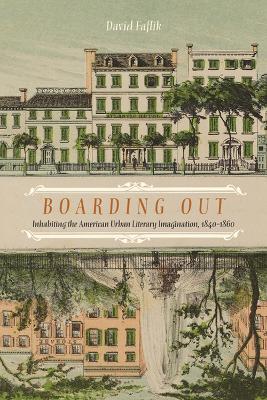Driven by intensive industrialisation and urbanisation, the nineteenth century saw radical transformations in every facet of life in the United States. Immigrants and rural Americans poured into the nation's cities, often ahead of or without their families. As city dwellers adapted to the new metropolis, boarding out became, for a few short decades, the most popular form of urban domesticity in the United States.
While boarding's historical importance is indisputable, its role in the period's literary production has been overlooked. In ,em>Boarding Out, David Faflik argues that the urban American boardinghouse exerted a decisive shaping power on the period's writers and writings. Addressing the works of canonical authors such as Henry David Thoreau, Nathaniel Hawthorne, and Oliver Wendell Holmes, as well as neglected popular writers of the era such as Fanny Fern and George Lippard, Faflik demonstrates that boarding was at once psychically, artistically, and materially central in the making of our shared American culture.
- ISBN13 9780810128385
- Publish Date 30 September 2012
- Publish Status Active
- Publish Country US
- Imprint Northwestern University Press
- Format Paperback
- Pages 392
- Language English
